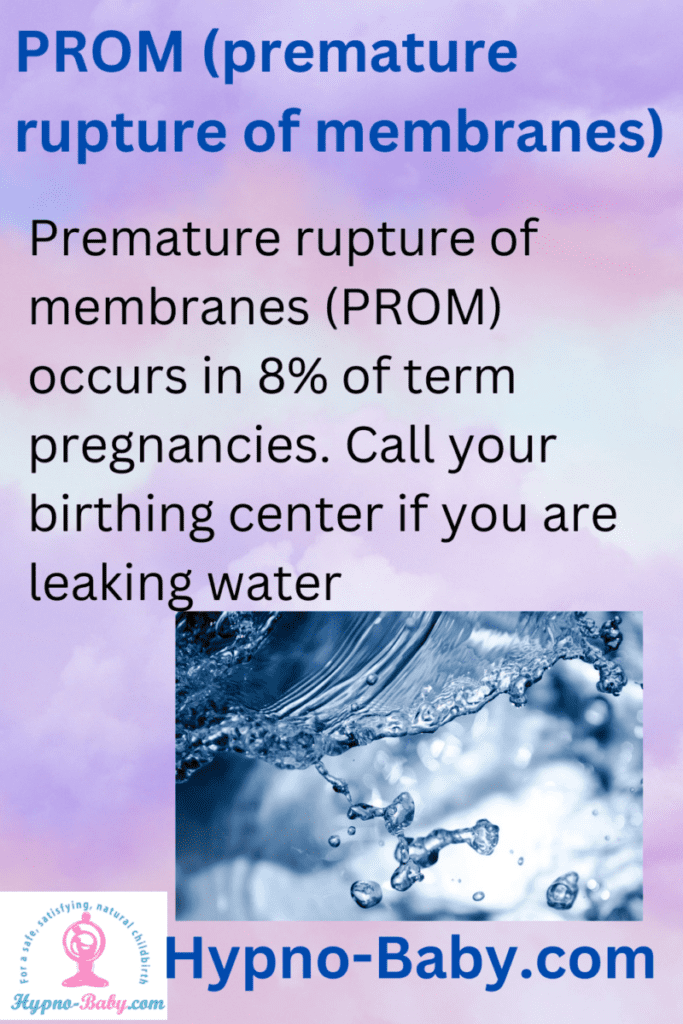Everything you need to know about premature rupture of membranes
What is PROM- premature rupture of membranes
Premature rupture of membranes (PROM) is a term used to describe a situation in which a pregnant woman’s amniotic sac, also known as the “water bag”, breaks earlier than expected during labor. This can happen anywhere from weeks before labor up to just before labor begins, and is considered a potentially serious complication during pregnancy.
PROM can increase the risk of infection and other complications, and it can also lead to preterm labor. It is important for pregnant women to know the signs of PROM so that they can receive medical attention as quickly as possible if it occurs, as the earlier it is diagnosed the greater the chance for a successful outcome.
In this blog post, we will go over what PROM is, what the signs and symptoms are, and what the potential complications and risks are associated with it.
What is PPROM preterm premature rupture of membranes
Preterm Premature Rupture of Membranes (PPROM) is a clinical complication that occurs when membranes surrounding the fetus rupture prior to the beginning of labor.
This is a potentially serious consequence for both mother and baby, as it increases the risk of infection, preterm labor, and other complications. It is important for clinicians to detect the onset of PPROM early in order to ensure that the mother is given the necessary care and medication to reduce the risks associated with the condition.
Additionally, early detection can help ensure that the baby is delivered as quickly as possible while minimizing the chances of adverse outcomes. While there is no known definitive cause of PPROM, there are certain risk factors that increase the chances of it occurring, including cigarette smoking, intrauterine infection, and maternal age.
It is important for clinicians to be aware of these risk factors to ensure they can
What happens if I break my water before my labor starts
If you suspect your water has broken before labor has started, it is important to contact your healthcare provider right away. While it is possible to deliver a healthy baby if your water breaks before labor, there is a greater risk of infection for both you and your baby.
Your healthcare provider will likely want to monitor the situation and may advise you to come to the hospital for further observation and testing. Depending on your situation and the results of any tests, your healthcare provider may decide to induce labor or wait for labor to start naturally.
Regardless, it is important to follow your healthcare provider’s instructions. You may also wish to discuss any questions or concerns with your healthcare provider.
What happens if I break my water before term
If your water breaks before term, it is important to seek medical attention immediately. Depending on the circumstances, your healthcare provider may recommend that you be admitted to the hospital.
If the amniotic fluid is clear, you may be able to remain at home and wait for labor to start. If the amniotic fluid is not clear, your provider may recommend antibiotics to reduce the risk of infection for you and your baby.
Depending on the gestational age of your baby, your provider may also recommend that you receive steroids to help speed up your baby’s lung development. Overall, preterm labor can be a very unpredictable and scary experience. Therefore, it is important to seek medical care if your water breaks before term.
Ultimately, PPROM is a rare but very difficult situation that can put both mother and baby at serious risk. If you experience PPROM before labor starts, you should contact your doctor immediately and discuss your treatment options.
Depending on your doctor’s advice and the health of the baby, you may be induced or allowed to go into labor naturally. It’s important to pay close attention to your symptoms and act quickly if you experience PPROM before your due date.


